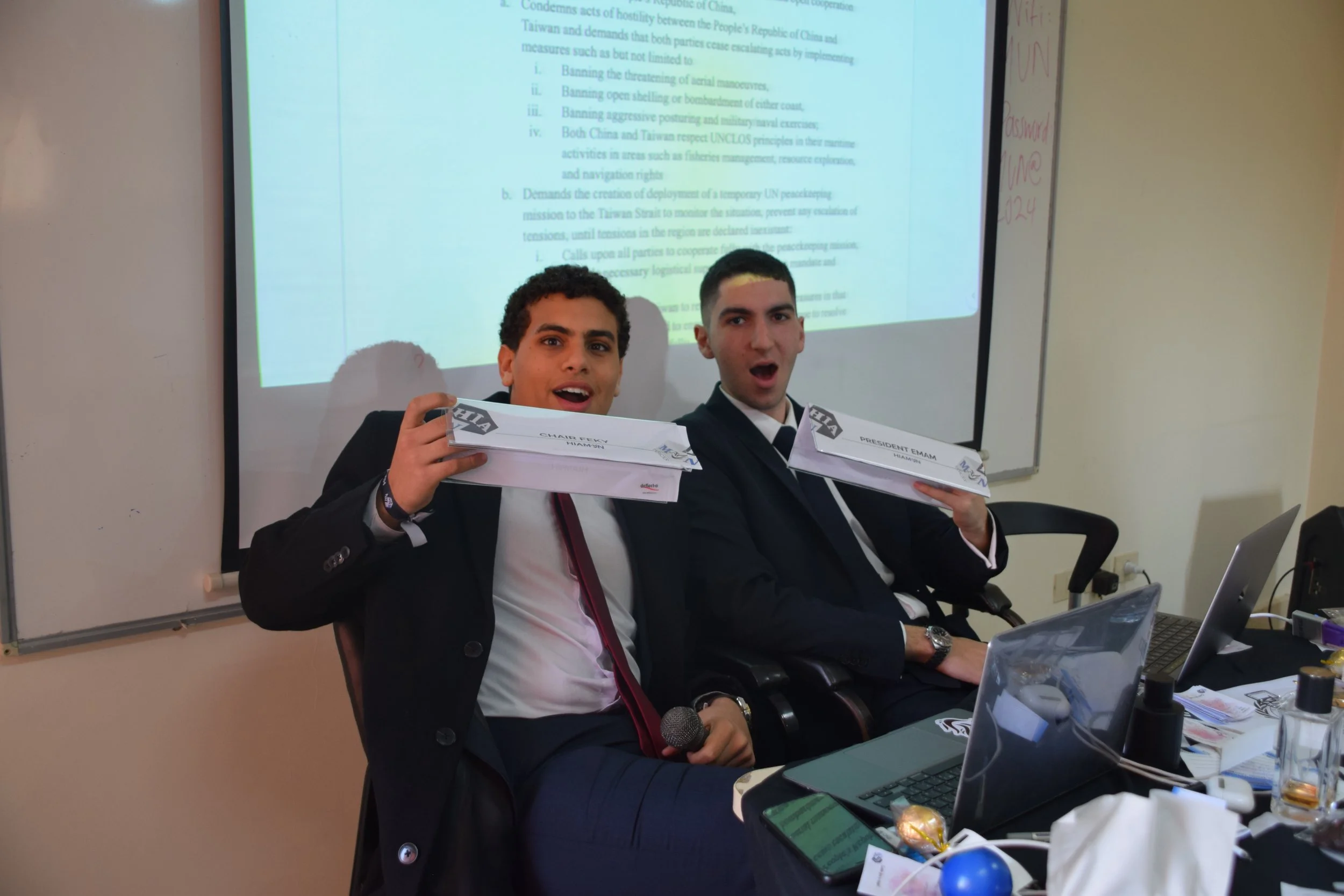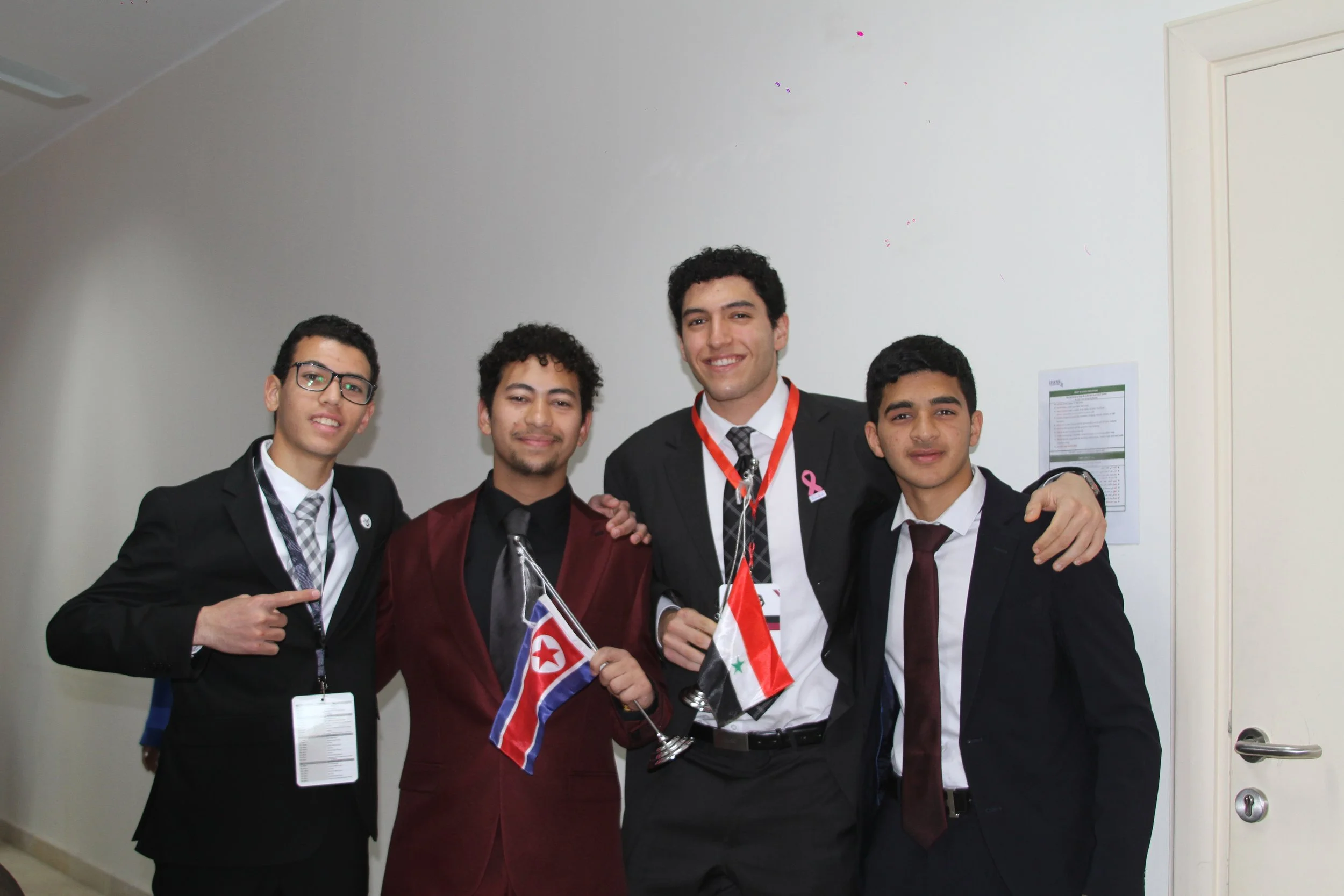Security Council
Karma El Nasharty, President
Nour Habib, Chair
The Security Council holds the most important role in maintaining international peace and addressing world politics as a whole. From the very first session in 1946 until today, each resolution crafted has impacted millions of lives. This year's theme is Synapses. Synapses are the places where neurons connect and communicate with each other. Just like Synapses, the Security Council coordinates and connects members from all around the world, uniting them as one front to solve issues of utmost relevance and importance. It serves as a platform to exchange information and shed light on important issues.
For this year's conference, my esteemed chair, Nour Habib, and I have chosen two topics that we believe require our attention and collaboration. For our first topic, we will be “Setting frameworks to stabilize the Nagorno Karabakh region”. The territorial dispute between Armenia and Azerbaijan dates all the way back to 1992 and has had a significant impact on multiple nations. This diverse issue has aspects ranging from cultural clashes to advanced AI weaponry; it represents the future of warfare, and hence, this topic is vital for debate. As for the second topic, we will be “Addressing the issue of Maritime security in the Russia-Ukraine conflict.” The Russia Ukraine conflict has far reaching consequences, one of which is the implications for maritime security in the Black Sea. This has resulted in a global security threat, as well as a threat to the security of all crews and vessels in the region. Hence, it is imperative that we address such a pressing issue.
Nour and I would like to welcome each and every one of you to HIAMUN’25. We are eager to witness you step up to represent your delegations, and we are beyond excited to chair the most prestigious forum in the United Nations. We hope to see you cooperate and exceed our expectations, together, we can connect to make SC the Synapses that enable the upholding of peace and stabilty.
Karma El Nasharty, President of the Security Council
Topics
1. Setting frameworks to stabilize the Nagorno Karabakh region. (Podcast)
2. Addressing this crisis in the Diplomatic Republic of Congo. (Podcast)

















